Faq
Can I stay with my child during their dental appointment?
We invite parents to stay with their child, especially during the first appointment. As your child gets more comfortable with us, we encourage you to allow them to be independent if they wish. We ask that you please respect the limited size of the treatment and waiting areas and attempt to present to appointments with as few extra individuals as possible.
If subsequent visits are necessary, we always welcome one parent in the room during treatment. If you choose to accompany your child, we kindly ask that you assume the role of a silent observer. This allows us to focus all of our attention on your child, and vice versa. Some children do perform better when a parent isn't present in the treatment room. If this is found to be the case our doctors will discuss different methods to help your child master the dental appointment.
Why visit a pediatric dentist?
Pediatric dentists are the pediatricians of dentistry. A pediatric dentist has undergone additional years of training focused on the oral health and unique needs of young people. After completing a four-year dental school curriculum, two to three additional years of rigorous training is required to become a pediatric dentist. This specialized program of study and hands-on experience prepares pediatric dentists to provide the best care to your infants, children and adolescents, including children with special health care needs.
What age should a child visit the dentist for the first time?
In accordance with the American Academy of Pediatric Dentistry and the American Academy of Pediatrics, our dental office recommends that you schedule your child’s first dental visit shortly after the child’s first tooth erupts and no later than the child’s first birthday. More than 1 in 4 children in the US have cavities by the time they are 4 years old and establishing a “Dental Home” for your child will allow for appropriate preventive and routine oral health care.
The focus of the age one dental visit is to educate parents on topics such as caring for your child’s teeth, the use of fluoride, the relationship of diet and oral health, teething and developmental milestones, oral habits (pacifiers/thumbsucking), and injury prevention.
For more information on the first visit, go here.
Why are baby teeth important?
A common misconception is that baby teeth are unimportant or do not need treatment, since they will be replaced by permanent teeth down the road. You may not know that baby teeth actually serve a number of critical functions in a growing child. For example, baby teeth …
- Maintain good nutrition
- Are involved in speech development
- Save space for permanent teeth, allowing them to erupt into a better, straighter position
- Allow your child to smile confidently! Children with rotted teeth or missing teeth may feel self conscious about their smile from a young age
When should I start using toothpaste for my child?
Following the most up-to-date guidelines by the American Academy of Pediatric Dentistry, you may start using a tiny smear of fluoride toothpaste (i.e. the size of a rice grain) as soon as the teeth erupt. By 3 to 6 years of age, the amount should be increased slightly to the size of a pea. Parents should supervise brushing to ensure the proper amount of toothpaste is being used. Toothpaste tubes should be stored out of reach of young children, as ingestion of large quantities of toothpaste may be harmful to young children.
When should my baby's first teeth start to erupt?
At about 6-8 months, the two lower front teeth (central incisors) are likely to erupt, followed shortly by the two upper central incisors. The remaining baby teeth will likely erupt during the next 18 to 24 months. By age 2 or 3, all 20 primary teeth should be present.
For more information about when your child's teeth with erupt, click here: primary teeth, permanent teeth.
